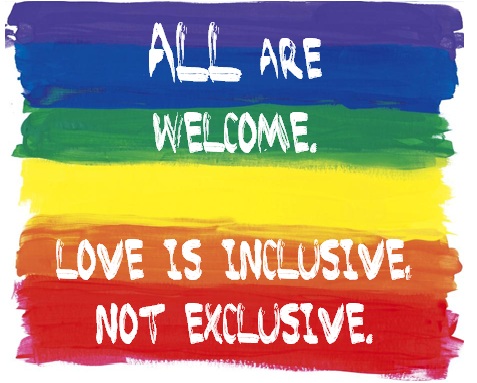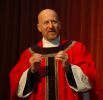- Feb 5, 2002
- 166,632
- 56,265
- Country
- United States
- Faith
- Catholic
- Marital Status
- Married
- Politics
- US-Others
Fr. Dwight Longenecker
One of the themes echoing through the discussions on the synod on synodality is the question, “How can we create safe and welcoming spaces for those who feel excluded from the church?”
A chasm has appeared in the response to this question. Progressives appeal to the need for compassion for those they perceive as excluded victims while conservatives see the question as a toe in the door for the normalization of sinful choices and the excuse to embrace sinners without the need to call for their repentance.
This disagreement is rooted in a deeper divide about the identity and purpose of the church and in an even deeper divide about the condition of the human person.
It seems to me that the call for the church to be more welcoming and to find “safe spaces for those who are excluded” is predicated on a perception and experience of a culture that is already largely Catholic. The Holy Father comes from Argentina–a place where the majority of the population are culturally Catholic. Most of the population are probably baptized and have at least a minimum of understanding of the Catholic religion. At the same time huge numbers of Catholics in Latin America are abandoning the Catholic faith. They have abandoned what they perceive as its corrupt establishment, boring ethos, its moribund liturgies It is understandable then, that the. concern is–“How can we draw them back? How can we win back those who are alienated? How can we make the church welcoming for them?”
This assumption that everyone is Catholic and they simply need to be attracted back to the faith is then extended to become a position universalism or semi-universalism: That is–“Christ died for all therefore all are already redeemed, but clearly multitudes do not belong to the church and have not realized their redemption. How can we make the church welcoming to these people who (if you like) are saved but don’t know they are? How can we welcome them into the church they already belong to (if only they knew it)??
It is difficult to avoid the conclusion that these are the beliefs and assumptions underlying the ceaseless refrain of “How can we welcome? How can we create safe spaces? How can we open wide the doors of the church?”
Perhaps I may be forgiven for something so basic and theologically unsophisticated as actually referring to the Sacred Scriptures, but the gospel of St John is very clear about the state of humanity. In his conversation with Nicodemus recorded in the third chapter the Lord Jesus Christ says:
Continued below.

 dwightlongenecker.com
dwightlongenecker.com
One of the themes echoing through the discussions on the synod on synodality is the question, “How can we create safe and welcoming spaces for those who feel excluded from the church?”
A chasm has appeared in the response to this question. Progressives appeal to the need for compassion for those they perceive as excluded victims while conservatives see the question as a toe in the door for the normalization of sinful choices and the excuse to embrace sinners without the need to call for their repentance.
This disagreement is rooted in a deeper divide about the identity and purpose of the church and in an even deeper divide about the condition of the human person.
It seems to me that the call for the church to be more welcoming and to find “safe spaces for those who are excluded” is predicated on a perception and experience of a culture that is already largely Catholic. The Holy Father comes from Argentina–a place where the majority of the population are culturally Catholic. Most of the population are probably baptized and have at least a minimum of understanding of the Catholic religion. At the same time huge numbers of Catholics in Latin America are abandoning the Catholic faith. They have abandoned what they perceive as its corrupt establishment, boring ethos, its moribund liturgies It is understandable then, that the. concern is–“How can we draw them back? How can we win back those who are alienated? How can we make the church welcoming for them?”
This assumption that everyone is Catholic and they simply need to be attracted back to the faith is then extended to become a position universalism or semi-universalism: That is–“Christ died for all therefore all are already redeemed, but clearly multitudes do not belong to the church and have not realized their redemption. How can we make the church welcoming to these people who (if you like) are saved but don’t know they are? How can we welcome them into the church they already belong to (if only they knew it)??
It is difficult to avoid the conclusion that these are the beliefs and assumptions underlying the ceaseless refrain of “How can we welcome? How can we create safe spaces? How can we open wide the doors of the church?”
Perhaps I may be forgiven for something so basic and theologically unsophisticated as actually referring to the Sacred Scriptures, but the gospel of St John is very clear about the state of humanity. In his conversation with Nicodemus recorded in the third chapter the Lord Jesus Christ says:
Continued below.

A Theology of Acceptance | Fr. Dwight Longenecker
One of the themes echoing through the discussions on the synod on synodality is the question, "How can we create safe and welcoming spaces for those who feel excluded from the church?" A chasm has appeared in the response to this question. Progressives appeal to the need for compassion for...
